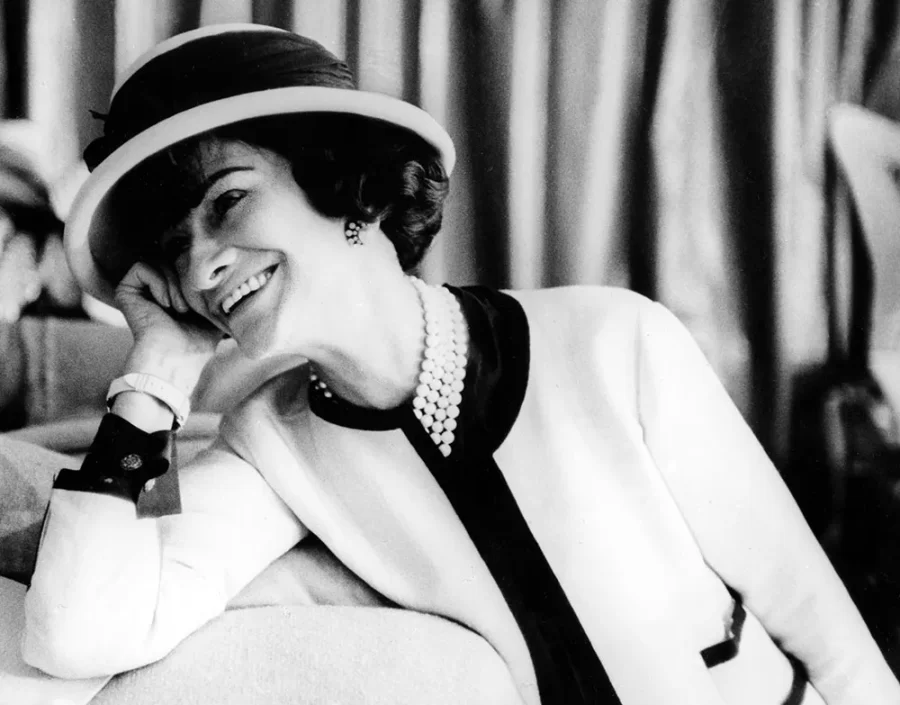Opinion: Honoring Coco Chanel’s Tarnished Legacy?
Who was Coco Chanel? To many, she was -and still is- a fashion icon. Not only is she just a fashion icon, but an inspiration, a hopeful dream, to inspiring designers and artists. Born into poverty in France in 1883, Coco Chanel (real name Gabrielle Bonheur Chanel) is a perfect example of a “rags-to-riches” story. She was the founder and namesake of a luxury fashion brand, and she is credited with revolutionizing women’s clothing, including the famous LBD, her two-toned shoes, and Chanel’s No.5 perfume. Despite the glories that are attached to her name, Coco Chanel led a double life that many people aren’t aware of, or would prefer to ignore.
Coco Chanel was a Nazi spy.
Chanel’s involvement with the Nazi party began in 1940, when she began a relationship with Baron Hans Günther von Dincklage, a German military intelligence officer. The following year, she became a registered Nazi agent with the code name “Westminster”, and was sent to Madrid to obtain information. It wasn’t until 1944 that her role as a spy came to light. Chanel never faced any form of punishment for her actions; she denied any involvement and claimed that she had only associated with the Nazis to get her nephew out of prison. However, modern historical and biographical works, such as Hal Vaughan’s 2011 book Sleeping With The Enemy: Coco Chanel’s Secret War reiterate what was formerly swept under the rug: Chanel actively and willingly allied herself with the Third Reich.
That is why I was so disheartened when I learned that our school made a poster of her for Women’s History Month.
Of all the prominent women that have left their mark on the world, why choose one who collaborated with one of the most undeniably evil regimes in human history? There are countless other, far less problematic female role models out there who are more deserving of our attention. I’m disappointed that our school -which preaches tolerance, acceptance, and inclusion- did not do a better job of vetting the women they chose to highlight for Women’s History Month.
Of course, it is certainly worth mentioning that the study of history is subjective, and debates over the legacies of numerous historical figures have come into the spotlight in recent years. Critics of reexamining, or “canceling”, the people in question might argue that acknowledging their flaws overshadows their accomplishments. However, acknowledging flaws and acknowledging accomplishments are not mutually exclusive. I believe in giving credit where credit is due, which is why I acknowledge that Coco Chanel was a revolutionary fashion designer. But I also believe that people should be held accountable for their actions, which is why I also acknowledge that Chanel was a Nazi agent. And in my mind, that is egregious enough to overshadow her other accomplishments. But my opinion is just that: An opinion, and I don’t expect or demand you to share it. All I ask is for our society to assess people from multiple perspectives before deciding who deserves our respect and admiration.
Works Cited
Ott, T. (2020, June 15). Coco Chanel’s Secret Life as a Nazi Agent. Biography.com. Retrieved March 16, 2023, from https://www.biography.com/history-culture/coco-chanel-nazi-agent
Pinnock, O. (2022, October 12). Do Coco Chanel’s Nazi Connections Matter for Fashion Today? Forbes. Retrieved March 16, 2023, from https://www.forbes.com/sites/oliviapinnock/2020/10/01/coco-chanel-nazi-connection-matter-for-fashion-today/?sh=11dcb87f54a5















